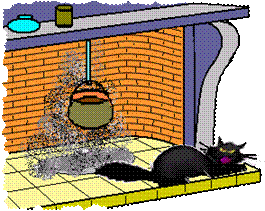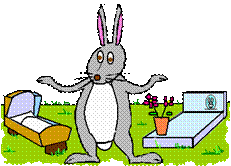Proverbi veneti illustrati - EA-ELL -

E fémane xe come e scorese:
o te e moi o te e sofeghi
(Le donne sono come le scoregge: o te ne liberi o
resti soffocato)
Women are like
farts: either you let them go or remain choked

E fémene xe come l'acua
santa: tanto fà poca come tanta [basta sia poca che tanta]
(Le donne sono come l’acqua santa: con poca ocon tanta non cambia l’effetto)
Women are as holy water: with little or so much the
effect
does not change

E femene crea eà vita,
noialtri ghe eà toemo [togliamo]
(Le donne ci danno la vita e noi gliela togliamo)
Women give us life and we take away it from them

E fémene ga' bisogno de do
animai: un toro in leto e un musso che lavora
(Le donne hanno bisogno di due animali: un toro in
letto e un mulo che lavori)
Women need two animals: a bull in bed and a mule
that works

E fémene xe come e meansane,
ghe voe el baston pa farle vegnere su drite
(Le donne sono come le melanzane: occorre un bastone
per farle crescere dritte)
Women are like the eggplant: we need a stick to make
them grow straight

E fémene xe come e nuvoe: co
e va via xe na bea jornada
(Le donne sono come le nuvole: quando se ne vanno è una
bella giornata)
Women are like the clouds: when they leave is a good
day

E fémene xe come e sardee:
butà via eà testa el resto xe tuto bon
(Le donne sono come le sardine: tolta la testa, il
resto è tutto buono)
Women are like sardines: removed the head, the rest
is all good

E fémene xe come e sbrixe: e
pi bee e sta sempre co e soche pì grandi
(Le donne sono come i funghi: le più belle stanno sempre con le zucche più
grosse)
Women are like mushrooms: the most beautiful are
always with the biggest pumpkins

E fémene xe come i platani:
pur de fare e raize e te desfa anca eà strada
(Le donne sono come i platani: pur di fare radici, ti
disfano anche la strada)
Women are like plane trees: they break even the way,
just to make roots

E fémene xe come i schei: pì
te ghe n'è e pì te ghe ne vorissi
(Le donne sono come i quattrini: più ne hai e più ne
vorresti)
Women are like
money: the more you have, the more you want

Eà descorarave anca col
culo
(Parlerebbe persino col sedere)
She would even
talk with her back

Eà fémena: che eà piasa, che
eà tasa e che eà staga casa
(La donna ideale: che sia bella, che taccia e che resti
a casa)
The ideal
woman: nice, silent and staying at home

Eà gaina che ghe piase el
gaeo, ghe piase anca el so ponaro
(Alla gallina a cui piace il gallo piace anche il suo
pollaio)
The hen who likes the rooster also likes his chicken
coop

El bisogno fa far grandi
cosse
(Quando si è alle strette si fanno grandi cose)
Ripreso da
www.partecipiamo.it (modificato)
When you are
hard-pushed you will do great things

El bon figo ga d'aver:
camisa da pitoco, colo da impicà e culo da pescaor
(Il buon partito deve avere la camicia da lavoro, il
collo lungo e la fortuna del pescatore)
An eligible
bachelor must have: a work shirt, a long neck, and the luck of the fisherman

El bon vin va venduo su la
sogia
(Il vino buono va venduto sulla soglia)
Good wine is
sold at the door

El bon vin xe ciaro, amaro,
avaro
(Il vino buono è trasparente, non è dolce e se ne
versa poco)
Good wine is
clear, is not sweet and you drink a little of it

El brodo longo no l'è bon
gnanca par i malà
(Il brodo annacquato non è buono neanche per gli
ammalati)
The
watered-down broth isn't good either for the sick

El cafè l'è bon co tre S:
sentà, scotando, scrocando
(Il buon caffè ha tre S: si gusta Seduti, Scottante,
e Scroccato)
A good coffee
has three S: enjoying Sitting, Steaming, and Scrounged up

El can bagia co'l xe vicin
al so pajèr [pagliaio]
(Il cane abbaia quando è vicino alla sua cuccia)
Ripreso da
www.midisegni.it (modificato)
The dog barks
when it is next to his bed

El can de tanti paroni: el
more de fame
(Il cane che ha tanti padroni muore di fame)
The dog that has
so many owners is starving

El caval par la brena
[briglia], i omeni par la parola
(I cavalli si legano con la briglia e gli uomini con
la parola)
Horses are tied
by the bridle and the men with their word

El diavolo agiuta i
soi
(Il diavolo aiuta quelli dalla sua parte)
The devil helps
those on his side

El diavolo va a cagar sempre
sol monte più grando
(Il diavolo agisce sempre dove ce n’è di più)
The devil goes to
shit always on the highest mountain
(The devil
always works where there is more)

El fa da mona par no pagar
el dazio
(Fa il tonto per non pagare il dazio)
He does the
fool not to pay the duty

El fa el mestier de Michelasso:
el magna, el beve, el va a spasso
(Fa il mestiere di Michelaccio: mangia, beve e va a
spasso)
He does the
life of Riley: eats, drinks and goes for a walk

El faria manco de cagar, par
no butar via gnanca quela
(Farebbe anche a meno di farla per non doverla
buttare)
He would never
shit even, for not having to throw it

El fogo giuta [aiuta] el
cogo [cuoco]
(Il fuoco aiuta il cuoco)
The fire helps
the cook

El fruto no casca lontan da l'albaro
(Il frutto cade vicino all’albero)
The fruit falls
near the tree

El gato sol fogher xe segno
de miseria
(Un gatto sul focolare è segno di miseria)
A cat on the
hearth is a sign of poverty

El ghe porta l'aqua co le
recie
(E’ così innamorato che le porta l’acqua con le
orecchie)
He is so in
love that hands her the water with his ears

El gievano onde ch'el nasse
el more
(La lepre dove nasce muore)
The hare dies there
where is born
 El lavorar fa fadiga, la fadiga fa mal, el mal fa
morir
El lavorar fa fadiga, la fadiga fa mal, el mal fa
morir
(Lavorare stanca, stancarsi fa male, il male fa
morire)
Working makes
you tired, being tired hurts you, hurting kills you

El legno verde vol essare impizzà
(Il legno verde ha bisogno di essere ben acceso)
Green wood
needs to be well lighted

El leto xe el paradiso dei
povari
(Il letto è il divertimento dei poveri)
The bed is the
fun of the poor
 NOTA
D’USO
NOTA
D’USO
Le immagini possono essere liberamente copiate e utilizzate in altre pagine web, a patto che siano accompagnate dal riferimento al mio sito www.passatempi.brianzaest.it o a quello più specifico di ognuna, se indicato.
![]() Ritorno a Proverbi Veneti
Illustrati
Ritorno a Proverbi Veneti
Illustrati
© Copyright Giorgio Altichieri - 3/2010. Tutti i diritti riservati.
 USAGE CONDITIONS
USAGE CONDITIONS
Images can be freely copied ad used on other web sites only if accompanied by a reference to my site www.passatempi.brianzaest.it, or any other source site if specifically stated for the picture.
![]() Back to Venetian Proverbs
Illustrated
Back to Venetian Proverbs
Illustrated
© Copyright Giorgio Altichieri - 3/2010. Tutti i diritti riservati.